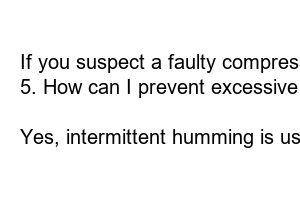냉장고 소음 원인
Title: Uncovering the Buzz: Causes of Refrigerator Noise
Introduction:
Every household is familiar with the gentle hum of a refrigerator, reassuring us that our perishables are being kept fresh. However, when that hum escalates into unsettling noises, it’s time to investigate the cause. In this blog post, we delve into the common culprits behind refrigerator noise, providing insights and solutions to ensure peace and quiet in your kitchen.
1. Improper Leveling: A Foundation for Disturbance
If your refrigerator isn’t level, it can result in alarming noises. When the appliance isn’t balanced, its components may vibrate against each other, causing rattling sounds that can disrupt your tranquility.
2. Misaligned or Worn Out Motor: The Whirring Wonder
A misaligned or worn out motor can produce a constant, irritating whirring noise. Over time, the motor’s parts may decay, leading to a vibrating and buzzing refrigerator. Regular maintenance and lubrication can help alleviate this issue.
3. Faulty Fans: Air Circulation and Chatter
Refrigerators rely on fans to circulate cool air throughout their compartments. However, these fans can become clogged with debris or suffer from wear and tear, leading to an audible buzzing or rattling sound. Cleaning or replacing the fans can be the key to regaining tranquility.
4. Noisy Compressor: An Unwanted Symphony
The refrigerator’s compressor is its heart, responsible for cooling and pressurizing the refrigerant. However, if it becomes faulty or worn out, it can create clunking or knocking noises. Professional assistance is highly recommended for handling potential compressor issues.
5. Dripping Water: The Unwelcome Melody
A leaking water valve or faulty defrosting system can trigger the sound of dripping water in your refrigerator. This noise can be especially bothersome during quiet moments. Identifying the source of the leak and fixing it promptly can resolve this issue.
6. Expansion or Contraction: Creeping and Popping
Temperature fluctuations within the refrigerator can cause the appliance’s materials to expand or contract, resulting in popping or creaking noises. While these sounds are normal, excessive noise may indicate an underlying problem that requires attention.
7. Loose or Misaligned Components: Clattering Chaos
Loose or misaligned components within the refrigerator, such as shelving or drawers, can lead to clattering sounds. Ensuring everything is properly fitted and secured can restore tranquility to your kitchen.
Summary:
Refrigerator noise can disrupt the peaceful ambience of your kitchen, but identifying the cause of these sounds is the first step toward rectifying the issue. By addressing problems such as improper leveling, misaligned or worn-out motors, faulty fans, noisy compressors, dripping water, expansion or contraction, and loose or misaligned components, you can restore calm to your kitchen environment. Remember, regular maintenance and seeking professional assistance can go a long way in keeping your refrigerator operating smoothly and quietly.
FAQs:
1. How often should I clean the refrigerator’s fans to prevent noise?
To maintain optimal performance, it is recommended to clean the fans every six months or whenever you notice excess debris accumulation.
2. Can I level my refrigerator on my own?
Leveling your refrigerator can be done manually, following the manufacturer’s instructions provided in the user manual. However, if you are unsure, it is best to seek professional assistance.
3. Why does my refrigerator make a gurgling sound occasionally?
The gurgling sound is typically caused by the circulation of refrigerant within the cooling system, which is a normal part of the refrigeration process.
4. What should I do if my refrigerator’s compressor is noisy?
If you suspect a faulty compressor, it’s essential to contact a professional technician to evaluate the situation. Attempting repairs without proper expertise can lead to further damage.
5. How can I prevent excessive noise resulting from component expansion or contraction?
Avoid placing hot or warm items directly inside the refrigerator, as this can contribute to frequent temperature fluctuations. Additionally, ensure that the refrigerator’s door seals are intact to maintain consistent temperatures.
6. Is it normal for my refrigerator to make a humming noise intermittently?
Yes, intermittent humming is usually a normal occurrence as the refrigerator cycles on and off to maintain the desired temperature. However, if the noise becomes constant or significantly louder, it may indicate a problem that requires attention.

